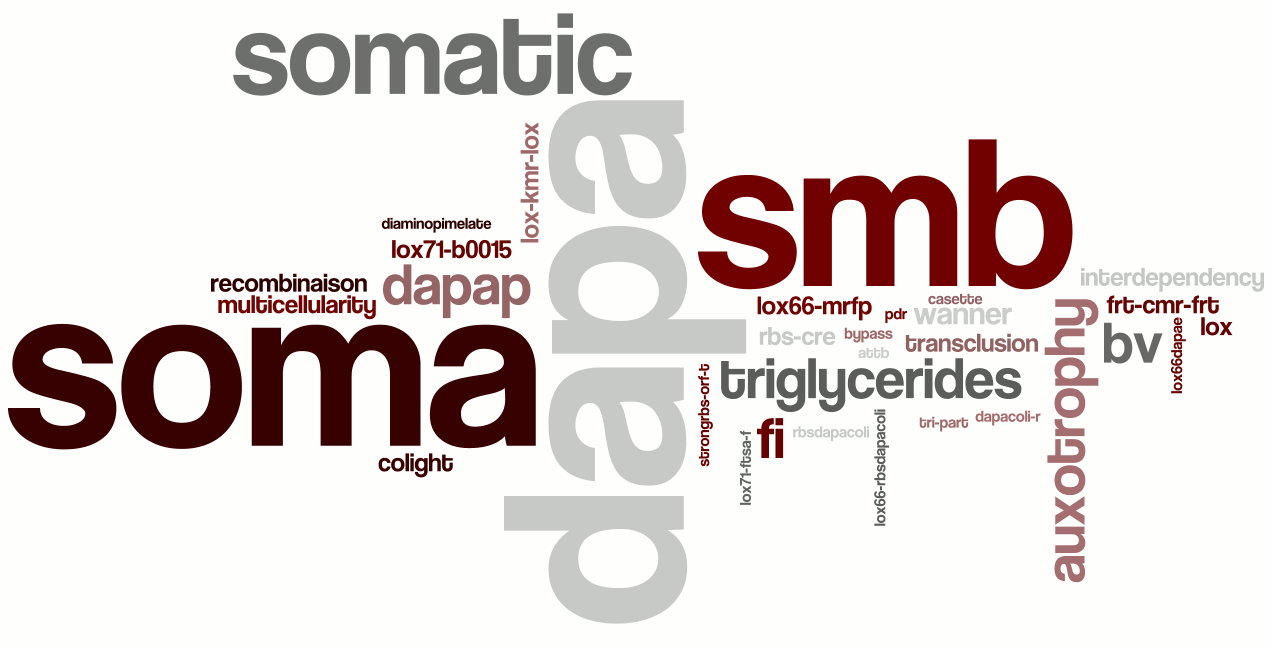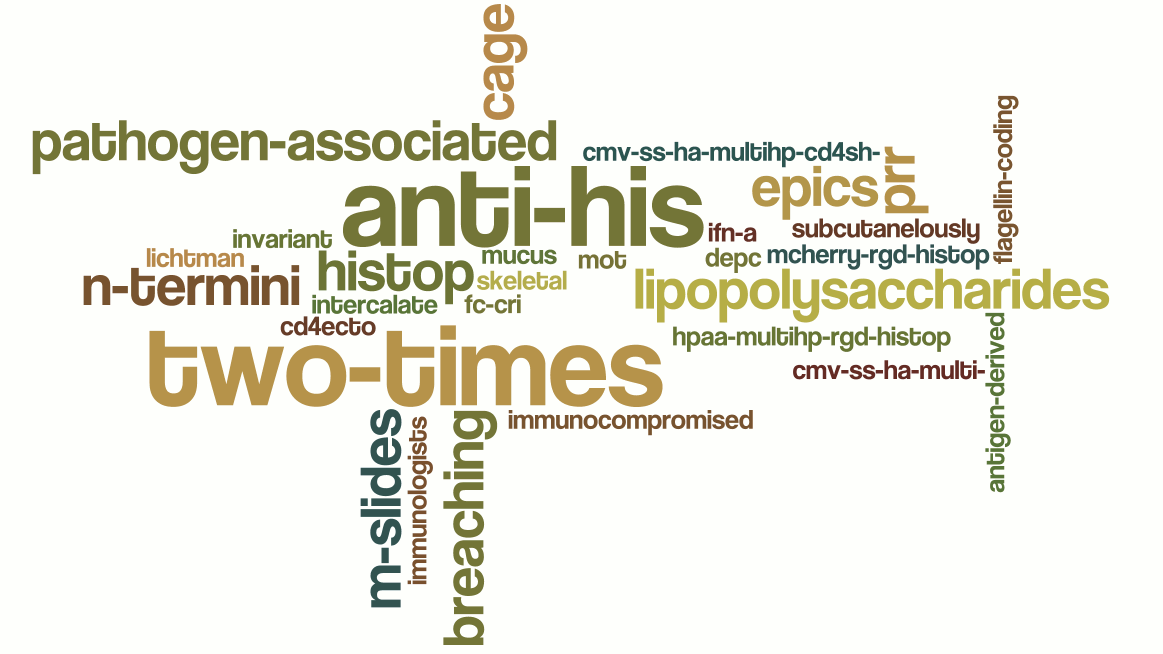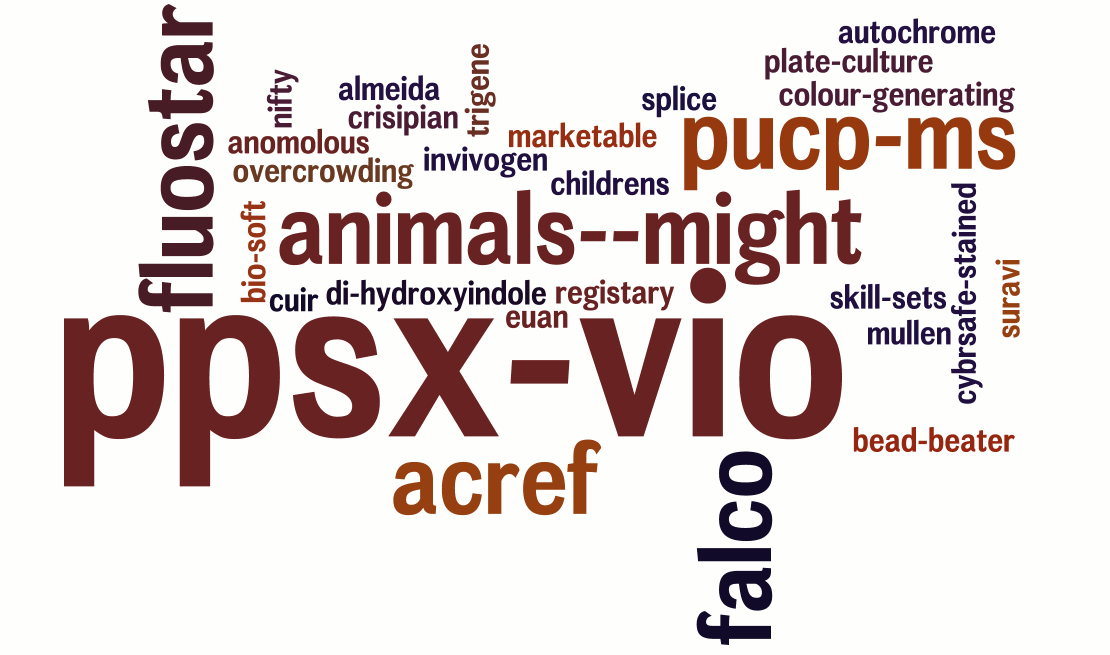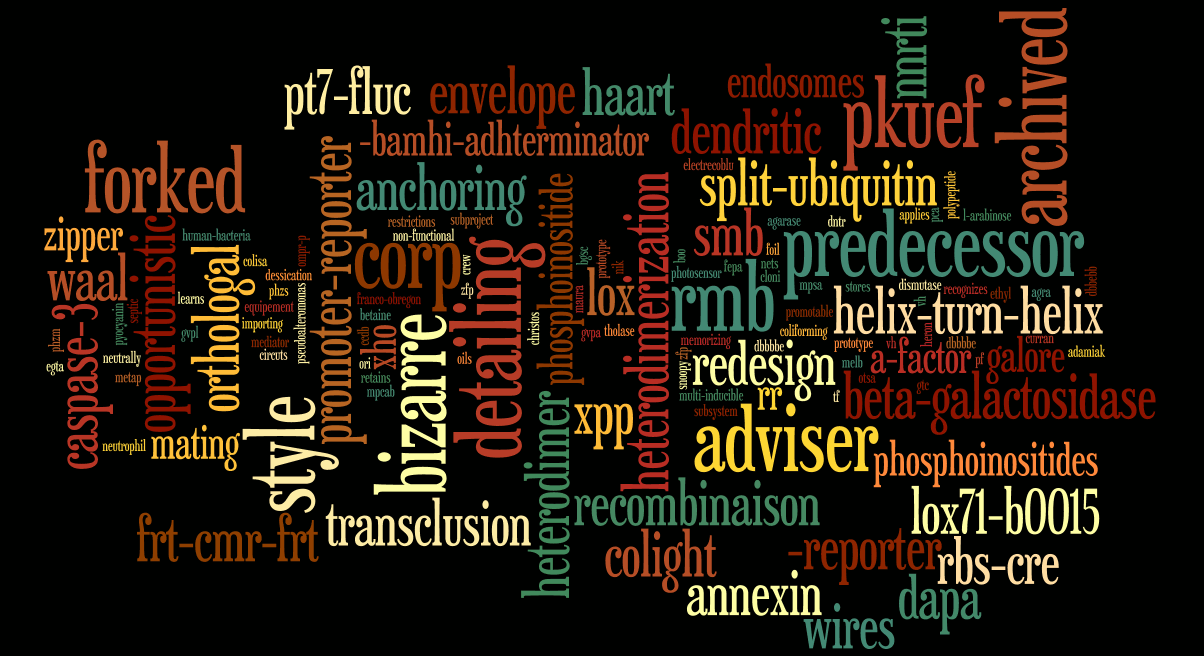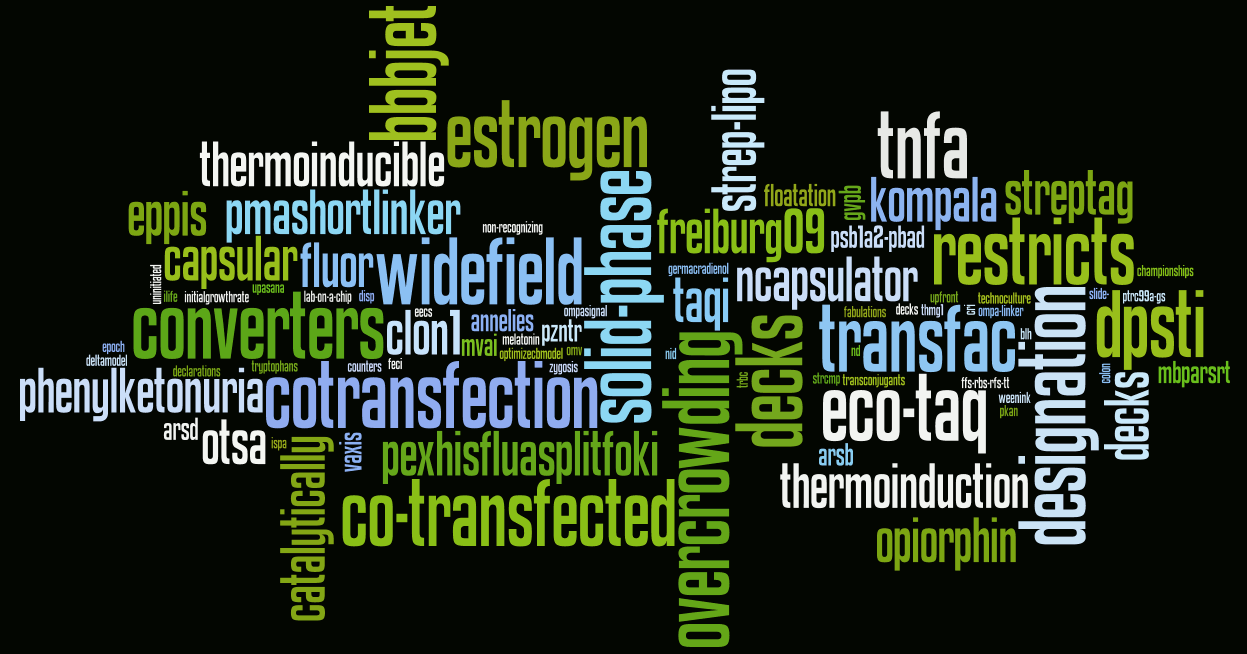Team:Paris Liliane Bettencourt/Project/SIP/Results
From 2010.igem.org
Our first aim was to determine who will be the winner of the igem competition, analysing the wikis, finding original words, cooperative words or paper's lab words. Unfortunately, we didn't have time to make that, but we find that SIP characterize very well wiki, and find some original words.
We have calculate SIP words for each team and each year since 2007 using SIP.C, for each them we have take the 25 top sip valued words. We use TOP_SIP.C to make that, this software see what is the hight SIP value and then take N words with this hight SIP.
When we got our words, we put in a [http://www.wordle.net/ software], to display them with graphical effect : words with hight frequencies has a big font, and words with low frequencies has a small font.
Paris Team
First, we analyse the [http://parts.mit.edu/igem07/index.php/Paris team Paris 2007] and we get that (we have selected 60 words to get, with a filter : all words like "p1", "f23" are removed) :
You can see some gene displayed on the screen, which characterize the project :
- smb : the name of the project.
- cre/lox/lox66/DGAT/dapA etc. name of recomination site, molecules and genes, characterize their project.
Subject of the project Paris 2007 was :
"The aim of our project is to engineer the first synthetic multicellular bacterium, the SMB. This new organism is a novel tool for the engineering of complex biological systems. It consists in two interdependent cell lines. The first, dedicated to reproduction is the germ line (red cells in the simulation below). It is able to differentiate into the second line: the soma (green cells), which is sterile and dedicated to support the germ line. The germ line is auxotroph for DAP (diaminopimelate) which is provided by the soma. There is thus an interdependency relationship. The soma, being sterile, requires the germ line for its generation, while the germ line needs the soma to complement its auxotrophy. We provide here both experimental and computational evidences that this system can work, as well as the almost complete construction of the SMB."
Last iGEM Winner
Next we have generate image for the three last iGEM winner.
Peking 2007
Slovenia 2008
Cambridge 2009
iGEM Ranking
We try to aproach our first goal with determining the high words used by the last iGEM winner. So we generate for 2007 and 2009 year. We attribute points to winner using the next rules. We keep 15 words by team. Notice, people name and miss spelling words are remove to have a better display.
- Grand prize : 5 pts.
- Finalist : 3pts.
- Other prize : 1pt.
- Winner : 5pts.
- 1st Runner up : 4pts.
- 2nd runner up: 3pts.
- Runner up : 2pts.
2007 year :
- Peking: 6 pts.
- Ljubljana: 4 pts.
- Paris: 4 pts.
- UCSF: 3 pts.
- USTC: 4 pts.
- Glasgow: 1 pt.
- Alberta: 1 pt.
- Cambridge: 1 pt.
- Melbourne: 1 pt.
- UC Berkeley: 1 pt.
- Calgary: 1 pt.
- ETHZ: 1 pt.
2009 year
Alberta: 1 pt.
ArtScienceBangalore: 1 pt.
BCCS-Bristol: 1 pt.
Berkeley Software: 1 pt.
Cambridge: 6 pts.
EPF-Lausanne: 1 pt.
Freiburg bioware: 4 pts.
Groningen: 2 pts.
Heidelberg: 6 pts
Illinois-Tools: 1 pt.
Imperial College London: 4 pts.
Paris: 1 pt.
Stanford: 1 pt.
TUDelft: 1 pt.
ULB-Brussels: 1 pt.
UNIPV-Pavia: 1 pt.
Valencia: 5 pts.
 "
"




